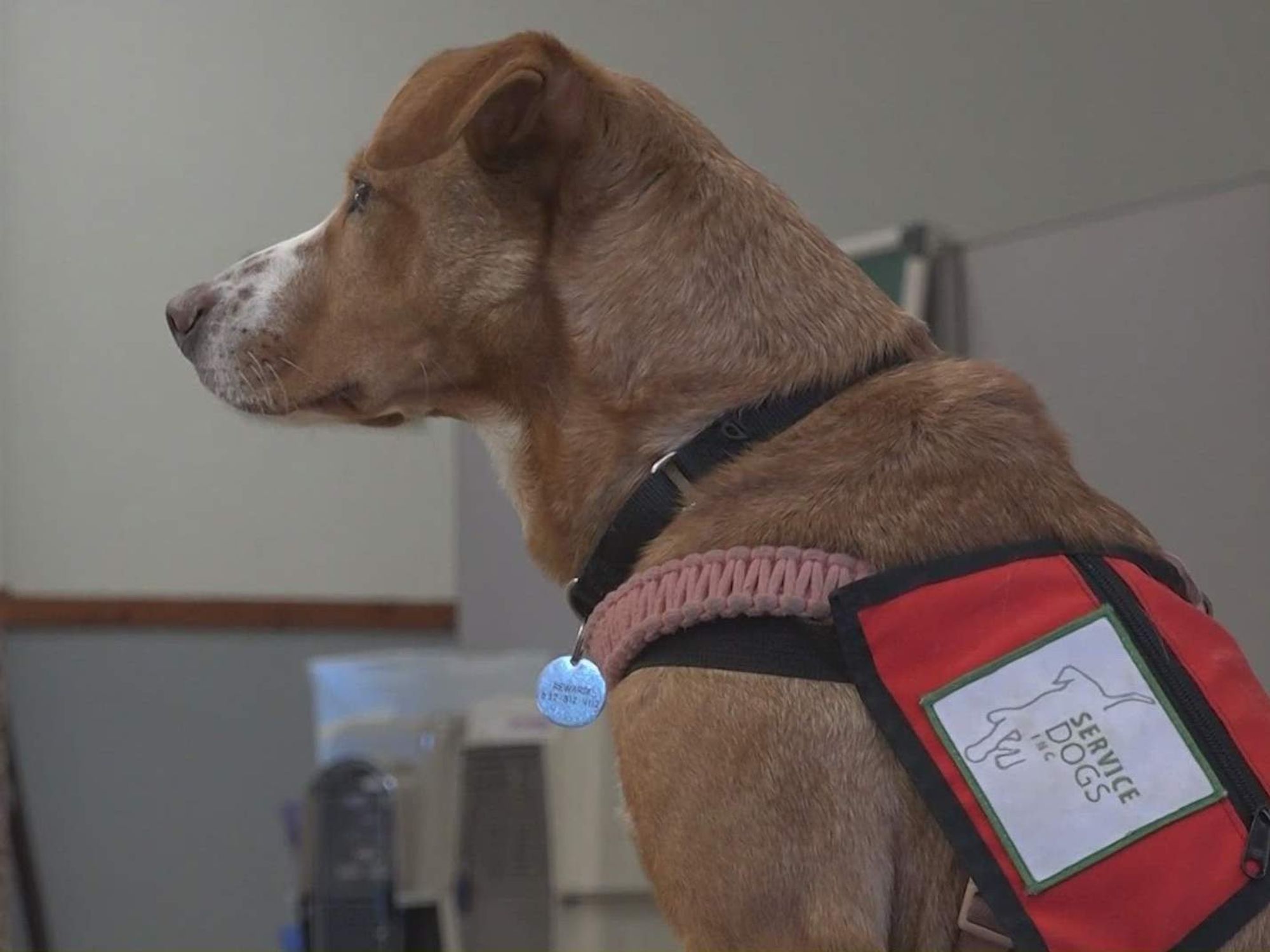Shelter to Service
Dripping Springs nonprofit trains service dogs rescued from shelters

The group estimates that it's gotten more than 1,000 dogs out of the shelter system.
For the past 35 years, a service dog training nonprofit in Dripping Springs has transformed unwanted dogs into essential partners for Texans living with significant challenges.
Sheri Soltes, founder and CEO of Service Dogs, Inc., says the dogs they train help serve people with hearing or mobility disabilities. The canines also comfort those enduring traumatic events.
In a time where most animal shelters in Central Texas are over capacity, Service Dogs, Inc. is handing out second chances to pups with potential to make a difference in people’s lives.
“They're sort of like the cousins to guide dogs,” Soltes said. “Except we're unique because we get our dogs from animal shelters instead of having a breeding program. So we help the dog and we help the person.”
She says the nonprofit can’t adopt every dog because the pups must meet specific qualifications, narrowing down from their age to their temperament.
Soltes says dogs must be at least a year and a half old in order to be X-rayed to assess their health, must be extremely people-oriented and should be comfortable being in public settings.
She says Service Dogs, Inc. may bring back one out of 500 dogs in a shelter.
“We've probably trained well over a 1,000, probably closer to 1,200 dogs by this time over 36 years. Any dog that we adopt from a shelter, if it doesn't complete the training, we don't take it back to the shelter, will find it a good pet home. So, they're going to win either way with us,” Soltes said.
Depending on the pooches’ temperament and personality, they’ll be trained in any and all of four programs available.
Soltes says the nonprofit trains the canines to be hearing dogs that can alert people who are deaf or hard of hearing. They could be trained for people with mobility disabilities, learning to open and close doors or steady someone’s balance.
She says they also train dogs to work in areas devastated by catastrophic storms, in courthouses in the victim's assistance departments or with first responders struggling with their mental health.
“They're not always the right tool for every kind of job, but they're very, very helpful,” she said.
--
Read the full story and watch the video at KVUE.com.

 The Waldorf Astoria Hill Country will be constructed in Fredericksburg. Rendering courtesy of IMI Worldwide Properties
The Waldorf Astoria Hill Country will be constructed in Fredericksburg. Rendering courtesy of IMI Worldwide Properties  I-35 in Austin is one of nine freeways where the infrastructure is "nearing the end of its functional life." Photo courtesy of Getty Images
I-35 in Austin is one of nine freeways where the infrastructure is "nearing the end of its functional life." Photo courtesy of Getty Images